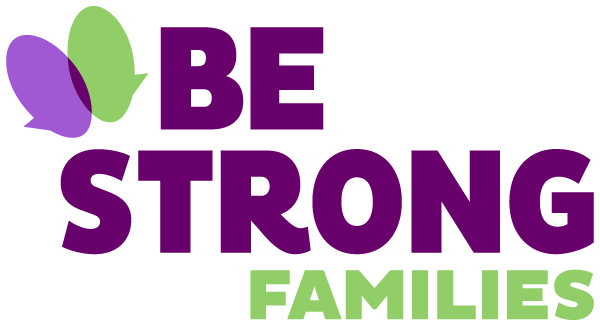
National Parent Café Evaluation Report
Executive Summary
Executive Summary
Intro
Since Be Strong Families first pioneered the Parent Café approach in 2007, hundreds of programs in the US and internationally have adopted the approach, reaching thousands of parents and families through deep, personal conversations designed to facilitate transformation and healing. Since 2019 we’ve aggregated data from over 96 participating agencies who collectively hosted over 869 Cafés. We’ve analyzed data from 13,977 individual evaluation surveys filled out by parents in those Cafés. Through the process we learned a lot about the agencies and individuals participating—and our own evaluation tools and processes. This first ever report looks at some trends from the data we collected in the 2019, 2020 and 2021 calendar years. We see this effort as the beginning of a process in which we engage a wider pool of partners and collectively build a knowledge base on the impact of Cafés.
About Parent Cafés
Parent Cafés are structured, small group conversations that create physically and emotionally safe spaces where parents and caregivers talk about the challenges and victories of raising a family. Parents gather around small tables, setup to feel like a café, and respond to specific questions prompts designed to promote mutual support and parent-to-parent learning.
Overall Trends in Evaluation Data
Broad Participation by Programs and Individuals
Over the three years 96 partner programs participated in the National Café Evaluation, 869 Cafés were hosted and close to 14,000 individuals filled out evaluation forms.
Adapting to Extraordinary Circumstances
When we started the National Café Evaluation project the world was barely aware of Covid-19 and how it would impact all our lives. Over the course of the pandemic Café participation moved from entirely in-person to almost entirely virtual. Total participation fell in 2020. As programs adapted, participation not only bounced back, but significantly increased in 2021. We expect future participation to reflect both on-line and in-person participation.
A Strong and Growing Capacity to Reach Black Indigenous People of Color (BIPOC) Parents and Participants
In 2019 about 33% of those who filled out Café evaluation forms identified as BIPOC. By 2021 that percentage was over 60%. The largest growth was in Hispanic/Latino participants which jumped from less than 10% to almost 30%. African American participants also grew from about 16% to over 22%.
One source of this growth is the sharp rise in the number of individuals participating in Spanish language Cafés. There was a six-fold increase in Spanish language Café participants over the three years.
Success Engaging Parents Facing Complex Parenting Issues
While all Cafés share a common structure and approach questions, Be Strong Families has tailored Café questions to address the needs of parent groups dealing with complex or unique issues.
These tailored Cafés provide parents with complex parenting issues, a safe space to meet, share parenting knowledge and get mutual support in an environment that is relevant to their unique needs. The table below lists the number and percent of individuals reached who self-identified with specific complex parenting statuses.
Prolonged Engagement with Parents
Large numbers of participants come back to Cafés over and over, demonstrating the value they place on the Café experience. Over 20% of individuals reported that they had participated in more than 6 Cafés and almost 12% of participants reported that they had participated in over 10 Cafés.
Success in Building Protective Factors
Participants were asked a set of questions intended to assess how the Café experience impacted specific protective factors. The chart below shows the questions asked related to each protective factor and the percentage of individuals who agreed or strongly agreed. Overwhelmingly, in all three years participant evaluations reflected growth in protective factors.
Environments That Support Learning
Participants were asked a series of questions about the Café environment that were designed to test whether the café was a safe space where they could learn from each other, and which promoted self-reflection. Again, the responses were overwhelmingly positive for all three years.
Building Engaged Leaders
One purpose of Cafés is to deepen the connection to the host agency and build parent leaders who can hold the café process within the agency. Again, overwhelmingly participants agreed with statements designed to test this purpose.
Conclusion
In general, we see Cafés achieving the goals that we had set out for them:
· Building participant Protective Factors.
· Creating safe spaces for participants to self-reflect and learn from others.
· Enhancing the feeling of connection to host agencies.
· Developing a cadre of leaders who are comfortable taking on the role of Café hosts.
Moreover, we see these results across a broad diversity of parents including a high proportion of BIPOC parents and large percentages of parents with complex parenting identity. We also see consistency in the results, even as programs made a radical shift from in-person to virtual café hosting. Finally, a participant’s engagement in Cafés is demonstrated by the large number of individuals coming back to participate in multiple Cafés over time.
Read the full report: Parent Café Report 2019-2021







